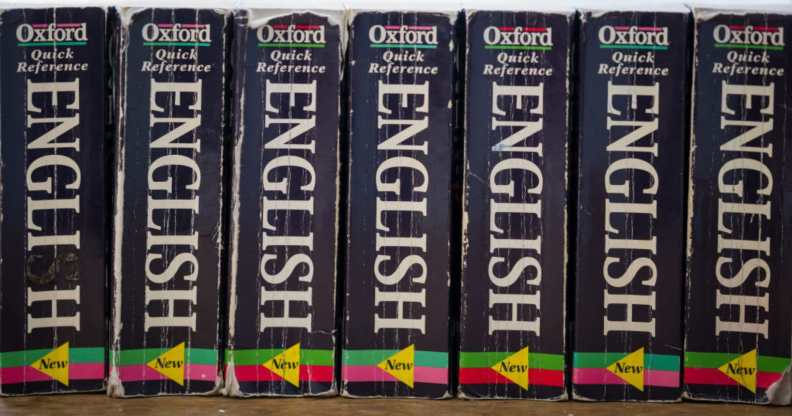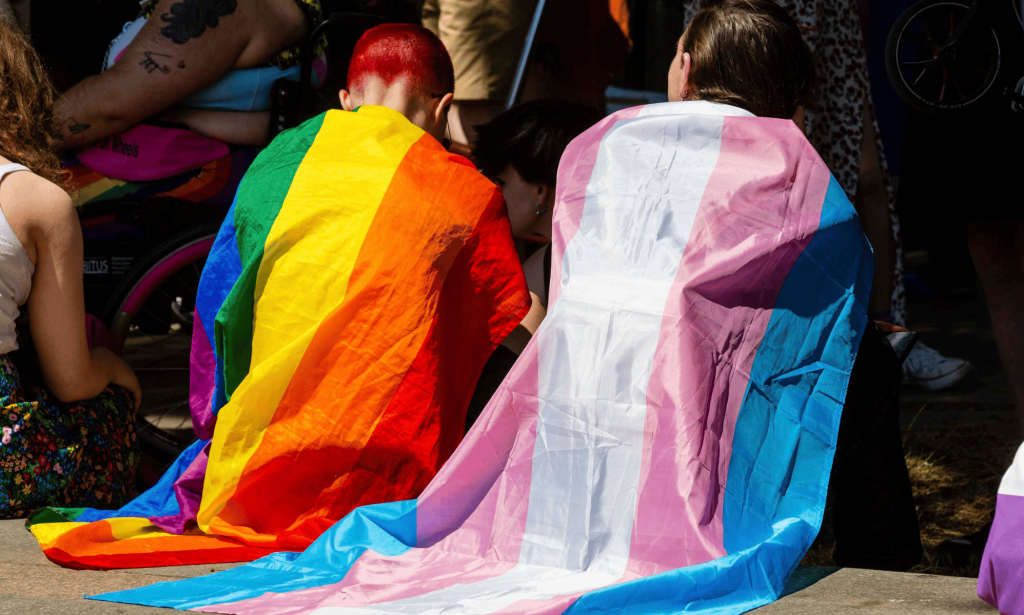Oxford Dictionary added enby, TERF and more than a dozen new LGBTQ+ words in 2022

The Oxford English Dictionary. (Getty)
The Oxford English Dictionary (OED) had added 18 new LGBTQ+ words or definitions this year.
Over the course of the year, the OED has recognised the queer community by adding many well-known words associated with it to its pages.
In September, “LGBTQ” (lesbian, gay, bisexual, transgender, queer) was added, along with “teahouse”, meaning “a public toilet used by men to engage in or solicit sexual activity with other men”.
The Oxford English Dictionary even added new, queer definitions of “top” and “bottom”.
Definition 12a of “Bottom” us “to take the role of the more submissive partner in bondage, domination, or sadomasochism”, while 12b is defined as “originally and chiefly among gay men: to be the partner who is penetrated in (esp. anal) sex”.
Included in the definitions added for “top” was: “To take a dominant role over (one’s partner) in bondage, domination, or sadomasochism” and “to be the partner who penetrates the other in sex between men (often with the implication of being the more dominant or active partner)”.
“Multisexual”, defined as sexual identities that include romantic and/or sexual attraction to more than one sex or gender, is also included in the OED’s latest update.
As an example, the Oxford English Dictionary cites a Twitter user as saying: “I don’t identify as bi but i’m grayasexual and when i do feel sexual attraction it’s to more than one gender so i usually say i’m multisexual.”
“Enby”, short for someone who is non-binary, was also added, along with “gender-affirming” which is one of four new sub-entries for the noun gender.
The Oxford English Dictionary defines “gender-affirming” as an adjective that “validates or confirms a person’s gender” and “enables a person, especially a transgender person, to live according to their gender identity”.
“Brotherboy” and “Sistergirl” – two new entries relating to Australian Aboriginal identities – are also included.
The OED defines “brotherboy” as a trans person who “identifies with or presents a masculine gender expression”, while a “sistergirl” is a trans person who presents in ways “associated with femininity”.
The word “bakla”, which the dictionary notes as a “sometimes derogatory, potentially offensive” word in Philippine English has also been added. It refers to “a person registered as male at birth who identifies with or presents a feminine gender expression”.
“Muxe” – pronounced “moo-say” – was also added. It’s a word used by Zapotec peoples [indigenous people of Mexico] to refer to a transfeminine person.
Reflecting the continued prevalence of LGBTQ-hostility, the dictionary added “anti-gay” and “anti-homosexual”, as well as “TERF” and “gender-critical”.

The entry for “TERF”, meaning trans-exclusionary radical feminist, states: “Originally used within the radical feminist movement. Although the [one who coined the term in 2008] (a trans-inclusive feminist) has stated that the term was intended as a neutral description, TERF is now typically regarded as derogatory.”
“Gender expression” and “gender presentation” were both added, but given the same definition: “The outward expression of gender (as defined culturally or biologically) or of gender identity (as an individual’s personal sense), typically through behaviours, mannerisms, modes of dress, etc, that are culturally associated with masculinity or femininity.”
How did this story make you feel?

